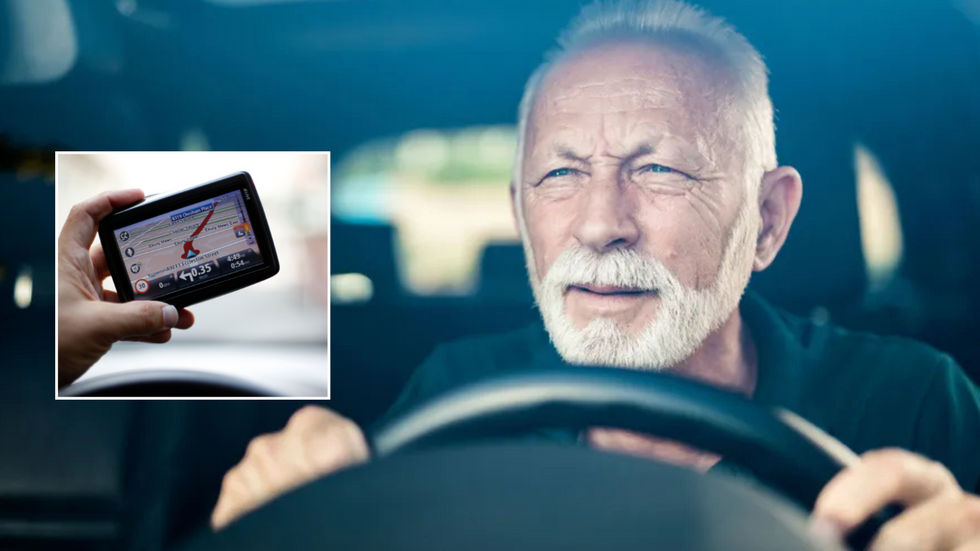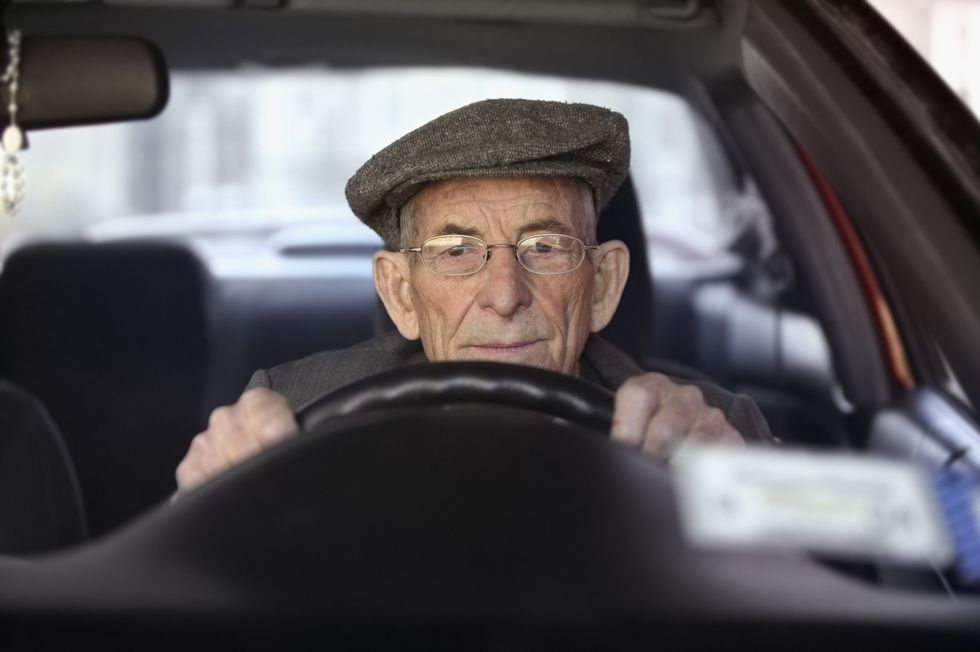WATCH: GB News discusses elderly drivers on the channel
GB NEWS
Sat navs help older drivers remain on the road, research has found
Don't Miss
Most Read
Trending on GB News
New research has found that satellite navigation systems help older drivers maintain their independence on UK roads longer, despite increasing calls for stricter regulations.
The study found that drivers over 65 with a poorer sense of direction rely more heavily on GPS navigation systems compared to other age groups.
Researchers discovered that elderly drivers who use GPS technology tend to drive more frequently than those who don't, with research finding that navigation tools have helped to mitigate spatial orientation difficulties that can come with ageing.
The study involved 895 UK drivers aged over 65, with an average age of 71, including 514 women. Participants self-reported how often and how far they drive, their subjective sense of direction, and how they use GPS navigation devices.
Do you have a story you'd like to share? Get in touch by emailingmotoring@gbnews.uk

Sat navs have been found to help keep older drivers on roads for longer
PA/GETTY
They also completed online cognitive tests assessing memory and spatial abilities with the research team finding that a significant majority of older drivers use navigation assistance for at least some journeys, and commonly for entire trips to new destinations.
For drivers with a poorer self-reported sense of direction, they were more likely to rely on sat nav systems, with the study also revealing that older drivers who use GPS technology drive more frequently than non-users.
Lead author Dr Sol Morrissey from the University of East Anglia said: "We know that using a sat nav system can alleviate the cognitive demands of navigation when driving, particularly when visiting less familiar destinations. And this technology has become increasingly popular among older drivers."
The research found that drivers who use GPS for everyday journeys to new locations were less likely to use landmark-dependent navigation strategies.
This is significant because landmark-dependent strategies involve recognising and storing landmarks as reference points.
This suggests that these navigation tools effectively help compensate for spatial orientation difficulties that can occur with age. The findings indicate that GPS technology plays a crucial role in maintaining driving mobility among older adults.
Senior author Professor Michael Hornberger from the University of East Anglia said: "Driving is usually the preferred mode of transport among older adults, and it can be vital for maintaining independence, quality of life, wellbeing, and cognitive health as we age.
"But age-related cognitive decline means that people might experience worsening spatial abilities, leading them to drive less and less."
Hornberger added: "Because we have an ageing population, it's really important to understand the factors that keep older people on the road, driving safely for longer."
Meanwhile, Dr Stephen Jeffs from the University of Exeter added: "Interestingly, this study shows that human navigation is comprised of multiple mental processes, and how understanding each process could improve in-car tech.
"For example, more frequent GPS use was associated with lower reliance on landmark-based navigation strategies, and so future sat nav developments could emphasise surrounding landmarks to facilitate driver engagement with their location."
The findings suggest that supporting older drivers with GPS navigation could help them maintain their driving independence for longer periods.
LATEST DEVELOPMENTS:
- Labour approves changes to driving licences giving electric vehicles more freedom - 'Common sense'
- Donald Trump's 25% tariff on car imports begin with Vauxhall, Rolls Royce and Mini warned of 'serious setbacks'
- Petrol and diesel drivers 'losing out' as drop in fuel prices could be 'short-lived' for hard-pressed Britons
 Elderly drivers more likely to have fatalities and serious injuries on UK roadsGETTY
Elderly drivers more likely to have fatalities and serious injuries on UK roadsGETTY"This means that if we support older drivers with using GPS navigation, it could really help maintain their driving independence, keeping them on the roads safely for longer," Hornberger explained.








